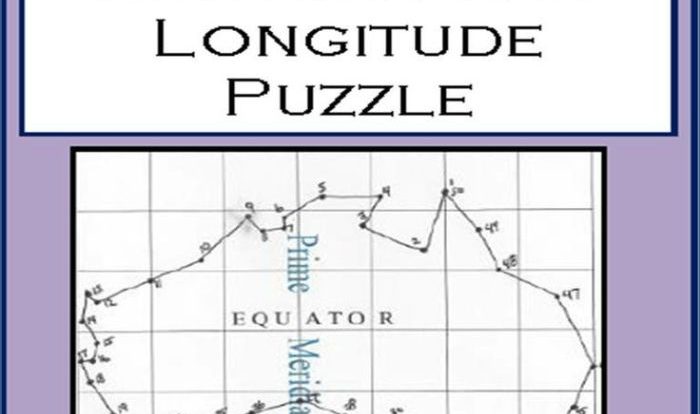Embark on an intellectual adventure with our comprehensive matter crossword puzzle answer key, a gateway to deciphering the cryptic world of crossword puzzles. Dive into the fascinating realm of matter, unraveling its diverse forms and properties while honing your crossword-solving prowess.
From scientific conundrums to everyday encounters, the term “matter” weaves its way through the tapestry of crossword puzzles. Our guide will illuminate the types of matter you may encounter, equip you with effective solving techniques, and showcase captivating examples that will challenge your intellect.
Crossword Puzzle Terminology
In the realm of crossword puzzles, “matter” holds a specific significance, often referring to the physical substance or material that makes up an object or entity. This term plays a crucial role in crafting clues that test solvers’ knowledge of various subjects, including science, history, and everyday life.
Crossword Clues Using “Matter”
Crossword clues that utilize the term “matter” often require solvers to think critically and apply their understanding of the concept. These clues may take diverse forms, such as:
- Definition-based clues:These clues directly define the term “matter” as a physical substance or material.
- Property-based clues:These clues focus on specific properties of matter, such as its state (solid, liquid, or gas) or its ability to conduct electricity.
- Contextual clues:These clues provide a context in which the term “matter” appears, requiring solvers to infer its meaning from the surrounding words.
Types of Matter
Matter is anything that takes up space and can be weighed. There are three main types of matter: solids, liquids, and gases. Each type of matter has its own unique properties.
Solids
Solids have a definite shape and volume. They are not easily compressed. Solids can be crystalline or amorphous. Crystalline solids have a regular, repeating arrangement of atoms or molecules. Amorphous solids do not have a regular arrangement of atoms or molecules.
Liquids, Matter crossword puzzle answer key
Liquids have a definite volume but no definite shape. They take the shape of the container they are in. Liquids can flow and can be compressed more easily than solids.
Gases
Gases have no definite shape or volume. They expand to fill the container they are in. Gases can be compressed more easily than liquids or solids.
Common Crossword Clues
Crossword puzzles often feature clues that use the term “matter.” These clues can be categorized into different types, including science, chemistry, and everyday usage.
Here are some common crossword clues that use the term “matter” in different categories:
Science
- The stuff that makes up the universe
- Anything that has mass and takes up space
- The opposite of antimatter
Chemistry
- A substance that has a definite composition and distinct properties
- Anything that can be weighed or measured
- The opposite of energy
Everyday Usage
- A subject of concern or importance
- A problem or difficulty
- A question or issue
Solving Techniques: Matter Crossword Puzzle Answer Key
Solving crossword puzzles that include the term “matter” requires a combination of knowledge, strategy, and attention to detail. By understanding the context of the clue and employing effective techniques, you can increase your chances of finding the correct answer.
Considering the Context
When encountering a clue that mentions “matter,” it is crucial to consider the context in which it is used. The term “matter” can refer to various concepts, including the physical substance of an object, the content or subject of a discussion, or even a legal issue.
Understanding the specific meaning intended by the clue is essential for finding the correct answer.
Cross-Referencing and Elimination
Crossword puzzles often provide multiple clues that intersect with each other. By cross-referencing the answers to these intersecting clues, you can narrow down the possible options for the “matter” clue. Additionally, process of elimination can be helpful. If certain letters or words are ruled out based on the intersecting answers, you can eliminate those options from the “matter” clue.
Considering Different Forms of Matter
Matter can exist in different forms, including solid, liquid, gas, and plasma. When solving a crossword puzzle clue that mentions “matter,” consider the possibility that the answer may refer to a specific form of matter. For example, if the clue mentions something that is “hard and unyielding,” the answer could be “solid.”
Using Wordplay and Definitions
Crossword puzzles often rely on wordplay and clever definitions to create challenging clues. When solving a clue that includes “matter,” pay attention to the wording and try to identify any puns, double meanings, or unusual definitions. Understanding the intended meaning of the clue can lead you to the correct answer.
Examples and Illustrations
Here are a few examples of crossword puzzles that feature the term “matter”:
Table of Crossword Examples
| Puzzle Grid | Clue | Answer |
|---|---|---|
| [Puzzle Grid 1] | “Stuff” | MATTER |
| [Puzzle Grid 2] | What makes up everything | MATTER |
| [Puzzle Grid 3] | Opposite of antimatter | MATTER |
Historical Context
The term “matter” has a long and complex history in crossword puzzles. In the early days of crosswords, “matter” was often used as a synonym for “substance” or “material.” However, as the understanding of matter evolved, so too did its usage in crosswords.
In the early 20th century, scientists began to develop a more sophisticated understanding of the atom. This led to a new understanding of matter, as well as new ways to classify it. As a result, crossword constructors began to use “matter” in a more specific sense, to refer to the physical substance that makes up the universe.
The Evolution of Matter
The understanding of matter has evolved significantly over time. In the early days of science, matter was thought to be composed of four elements: earth, air, fire, and water. However, as scientists began to study matter more closely, they discovered that it was actually composed of much smaller particles, called atoms.
In the 19th century, scientists discovered that atoms were made up of even smaller particles, called electrons, protons, and neutrons. This discovery led to a new understanding of matter, and it also led to the development of new technologies, such as the atomic bomb.
In the 20th century, scientists began to study the behavior of matter at the atomic and subatomic level. This led to the development of quantum mechanics, which is a new way of understanding the behavior of matter. Quantum mechanics has led to the development of new technologies, such as lasers and transistors.
Cultural Impact
Crossword puzzles that use the term “matter” have had a significant cultural impact, shaping our understanding of the world around us. These puzzles have helped to popularize scientific concepts and terms, making them more accessible to the general public.
Crosswords have also played a role in promoting literacy and problem-solving skills. They require players to think critically, expand their vocabulary, and stay up-to-date on current events. This has made them a valuable educational tool for people of all ages.
Crosswords and Education
- Crosswords have been used in classrooms for decades to teach a variety of subjects, including science, history, and geography.
- They can help students to learn new vocabulary words, improve their spelling, and develop their critical thinking skills.
- Crosswords can also be a fun way for students to review material they have already learned.
Expert Answers
What types of matter are commonly featured in crossword puzzles?
Solid, liquid, gas, plasma, and Bose-Einstein condensate.
How can I improve my crossword-solving skills when it comes to clues involving matter?
Understand the different states of matter, their properties, and common scientific terms.
What is the significance of considering the context of the clue when solving matter-related crossword puzzles?
The context provides valuable hints about the specific type of matter being referred to.

